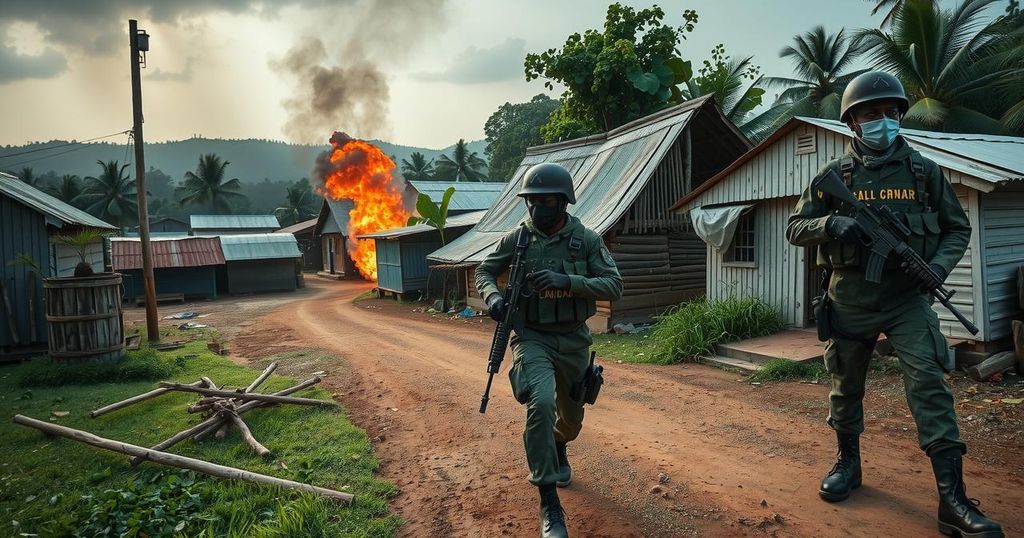M23 rebels, alleged to be supported by Rwanda, captured Masisi in Congo, following the takeover of Katale. The conflict has displaced thousands and escalated humanitarian crises, with accusations against Rwanda for resource exploitation. Diplomatic efforts for peace remain stalled amidst ongoing violence and legal actions against companies using conflict minerals.
The March 23 Movement, known as M23, has reportedly captured the strategic town of Masisi in the North Kivu province of the Democratic Republic of Congo, with alleged support from Rwanda. This town, which has a population of approximately 40,000, is located just 50 miles north of Goma, the provincial capital, making it a crucial area for refugees seeking safety. The capture of Masisi occurred on a Saturday, shortly after the group took control of Katale, another town in the region. Since 2021, M23 has expanded its hold over eastern Congo, displacing hundreds of thousands and intensifying what local leaders describe as a growing humanitarian crisis.
The Democratic Republic of Congo accuses Rwanda of utilizing the M23 rebels to exploit its rich mineral resources, including gold, cobalt, and tantalum—a claim that Rwanda firmly denies. In December, the Congolese government initiated legal action against Apple for its role in utilizing these so-called “blood minerals,” leading Apple to cease its acceptance of tin, tantalum, tungsten, and gold sourced from both the Democratic Republic of Congo and Rwanda.
Dialogue aimed at establishing a peace agreement between Congolese President Felix Tshisekedi and Rwandan President Paul Kagame was halted on December 15 due to significant disagreements regarding terms. The prospects for resuming these discussions remain bleak, especially against the backdrop of diminishing international attention towards Central Africa amidst the current tumultuous political climate in the United States.
The ongoing conflict in the eastern Democratic Republic of Congo is primarily fueled by the activities of various rebel groups, with M23 being one of the most significant. This region has been plagued by violence for decades, exacerbated by the influx of refugees and the competition for valuable mineral resources. The involvement of neighboring countries, particularly Rwanda, further complicates the matter. The term “blood minerals” refers to resources mined under conditions of conflict and suffering, raising ethical concerns about international business practices. The situation remains unstable, with recurring confrontations and humanitarian crises.
The capture of Masisi by M23 underscores the increasing volatility in eastern Congo, compounded by allegations against Rwanda of facilitating rebellion for resource exploitation. With ongoing humanitarian concerns and failed diplomatic efforts, the situation remains dire for affected populations. The potential for a lasting peace in the region appears uncertain, necessitating further international attention and intervention to address the root causes of conflict and displacement.
Original Source: www.gzeromedia.com






